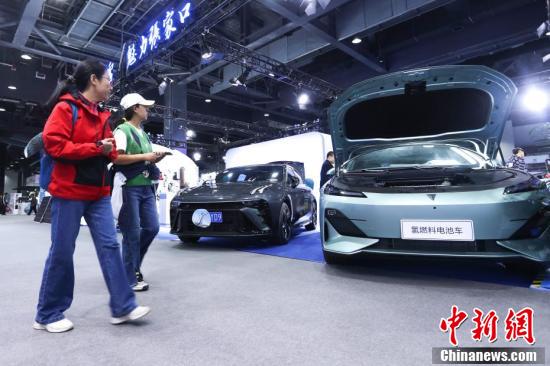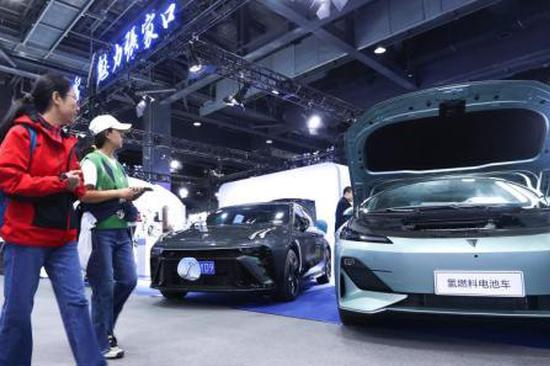EconoScope | EU's hefty tariffs on Chinese EVs to stifle its own industrial growth
(ECNS) -- The European Commission announced anti-subsidy tariffs on Chinese-made electric vehicles (EVs) for five years on Tuesday.
This decision has sparked immediate opposition. Hildegard Müller, president of the German Association of the Automotive Industry (VDA), called the move a “step backwards for global free trade,” warning it could negatively impact Europe's prosperity, employment, and economic growth.
Müller cautioned that the tariffs could heighten the risk of trade conflicts, ultimately harming the broader industry.
China, rejecting the EU’s final ruling on anti-subsidy investigation into Chinese EV imports, has filed a lawsuit through the WTO dispute settlement mechanism, the Ministry of Commerce (MOC) said on Wednesday.
The EU’s anti-subsidy investigation initiated without industry complaints from within the EU, violates WTO rules, and assumes a predetermined outcome. The ministry said the move is protectionist practice, and “unfair competition” under the guise of “fair competition.”

In the short term, the tariffs may disadvantage Chinese car manufacturers, but the EU may face a long-term backlash, potentially harming both economies and proving counterproductive.
While these tariffs aim to shield the EU’s automotive industry, they many instead undermine its own competitiveness, hindering innovation and industry transformation.
The U.S. saw similar consequences in the 1980s when restrictins on Japan’s auto industry led to complacency among American carmakers like GM, Ford, and Chrysler, who later faced bankruptcy crises, while Japan’s auto industry continued tothrive despite the restrictions.
Chinese EVs could stimulate competition and innovation among carmakers. Limiting them, however, may leave European companies lagging behind in a sheltered market.
Furthermore, these tariffs could hinder the EU's green transition.
In 2023, roughly 300,000 EVs sold in the EU were manufactured in China, accounting for 19.5 percent of the total EV sales. With each EV reducing carbon emissions by about 1.66 metric tons annually, Chinese EVs contribute around 498,000 metric tons in yearly carbon savings.
Blocking Chinese EVs could slow the EU’s green progress, weakening its energy independence and economic resilience.
Consumer welfare may also suffer as tariffs drive up costs, making goods more expensive and potentially reducing living standards.
This protectionist stance could backfire on the EU itself. While this principle has been articulated many times, the EU appears swayed by the politicization of economic issues.
The EU should not underestimate China's determination to defend its companies’ legitimate rights and interests.
While the EU has indicated a willingness to continue discussions on pricing commitments commitment with China, the latter has consistently favored resolving trade disputes through dialogue.
Technical teams from both sides are currently engaged in a new round of discussions, aiming to reach a mutually acceptable solution and prevent the escalation of trade friction.
Avoiding trade wars and pursuing win-win outcomes remains the best path forward.

